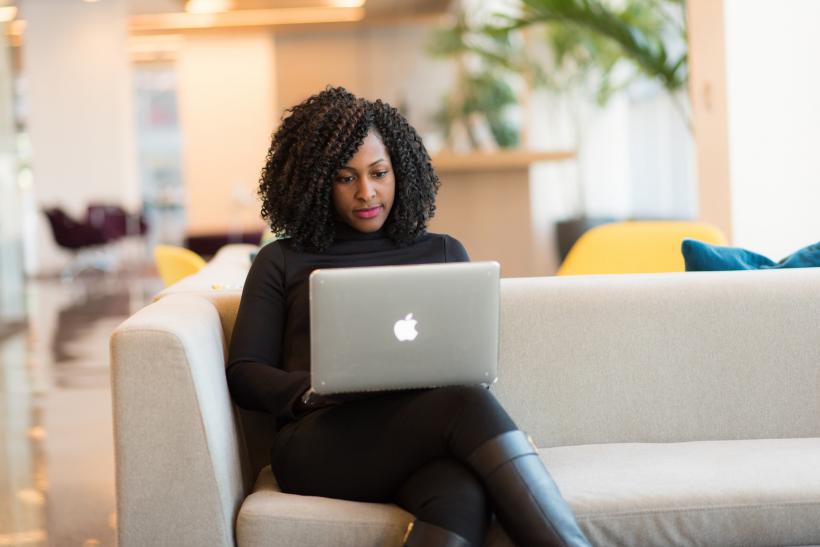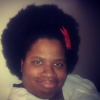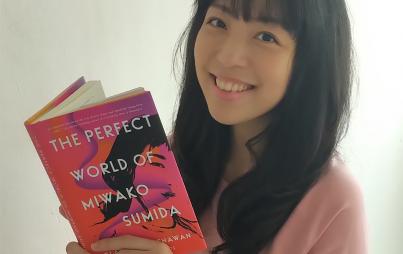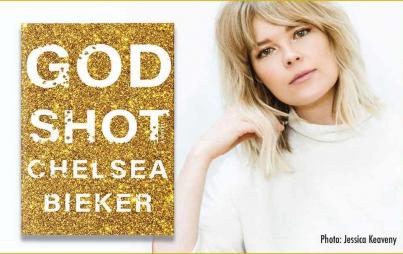
The reality is that we think, act, and experience and see the world differently. Image: WOCinTech Chat.
“Publications love disabled writers until our disabilities affect our writing.”
I haven’t always been disabled. And when I was, I wasn’t always aware.
It’s only within the last couple of years that I’ve begun to understand myself as having multiple disabilities:
I struggled, undiagnosed and untreated, with seasonal affective disorder (a form of depression) throughout most of my undergraduate career and beyond. It deeply affected my academic performance — a crushing blow to my pride as someone who graduated from high school third in her class.
I’ve been using a cane for two years now, for visibility purposes: As a young person with back issues, my mobility is often assumed in public spaces when I go without one.
I have an undiagnosed learning disorder (some form of dyslexia or ADHD).
And I have what is now referred to as C-PTSD, a form of post-traumatic stress disorder marked by lifelong or ongoing traumatic events — as opposed to the more widely recognized scenario of one distinct traumatic event. My C-PTSD developed a few years ago due to a history of childhood sexual abuse.
However, I’ve always been a writer.
I started out writing scribble-scrabble on walls, floors, and bedding in crayon. (Classic Denarii.)
Then I moved on to writing songs, poetry, and a play (in the fifth grade, no less). Today I’m a freelance writer and aspiring screenwriter.
These two identities now merge, and I’m keenly aware of the ways in which being marginalized specifically as a disabled person affects my work and how I’m perceived.
And I’m not the only one.
♦♦♦
I had the privilege of interviewing several fellow disabled writers about their experiences. The responses I received were overwhelming for me. Empowering. Validating. There was so much truth that they offered that I wish I had the space to share with you.
Some, like me, are freelancers, while others write poetry or are working on novels. Many of us do more than one kind of writing. Some have had their disabilities since childhood; others, like me, have only been disabled for a fraction of their lifetime.
But we all have one thing in common: the belief that writing cultures — from freelancing and publishing to editing and screenwriting — need to change.
Sian Ferguson, 21, a white South African freelancer with depression, anxiety, and PTSD, lost her gig with a publication recently because she turned in an article past its deadline. She had been away, hospitalized for suicidality. She says:
A lot of writing advice out there goes, “I made X amount of money in six months! You can too!” Or “I write 2,000 words each day! You can too!” [This] is simply not always possible for many physically or psychologically disabled people. It often fails to take into account that being frequently ill, depressed, or triggered eats into your writing time.
I’ve found this to be very true. I follow many screenwriting-related accounts on Twitter that sometimes post articles like “Tips for Breaking into XYZ” or “Here’s What the Most Successful X Do Every Morning.”
The advice they give assumes that we all have the mental or physical energy or ability to achieve these feats (or achieve them at a certain pace) — something that comes relatively easily to able-bodied and neurotypical people, but can be much more of a challenge for the rest of us.
Hearing these ableist “tips” over and over can create a sense of inadequacy: You feel like you aren’t doing enough to be successful at the thing you’re most passionate about, and you never will.
Lydia Brown, 22, born in China and raised in the Boston area, is a nonbinary writer and activist attending Northeastern University School of Law. They lament:
The expectation [is] that publishing […] is easy because all you have to do is send out a million query letters to agents, follow up, etc. [But] I have executive functioning disabilities, as do many autistic and other neurodivergent people, which make doing any large task with multiple little tasks involved extremely difficult.
Similarly, poet, writer, and collaborative artist Denise Leto, a long-time San Francisco Bay Area resident, has received her share of ableist advice. At 33, she was diagnosed with a neurological disability called laryngeal dystonia, which affects her speech. She relates:
Through sometimes-misguided good will or lack of knowledge and sensitivity, I have been advised to speak up louder, verbally “network,” and self-promote more aggressively.
The reality is that we think, act, and experience and see the world differently.
In a society created for able-bodied and neurotypical people, that’s what makes us disabled.
Brown finds that when writing autistic characters, ableist assumptions are made about what that character “would” or “wouldn’t” do:
I have been told that fiction I wrote was unrealistic because “no one would ever trust an autistic person to pick up their kid from school.”
In addition to the characters, people make assumptions about autistic authors themselves.
It's constantly assumed that autistic people can't write fiction because of our supposed lack of imagination and inability to empathize with others... [but autistic] people are often some of the most imaginative, creative, and empathetic [people] I've ever met…
This experience is one that Leto knows all too well:
There are the ubiquitous daily slights: impatience, being ignored, laughed at, sneered or yelled at, judged, and so on. But there are [also] the jobs I didn’t get, the clients I lost, the teaching opportunities that dried up, the […] reluctance to create adaptive environments for my expression or employment…
Sheila Black, 55, poet and director of Gemini Ink, a community-based literary arts center, feels she hasn’t faced obstacles as a disabled writer, per se. She has X-Linked Hypophosphatemia (XLH), a genetic disorder defined by the inability to absorb phosphorus, which results in weak bones and teeth and symptoms that mimic those of rickets. However, she acknowledges, “…there are probably a few jobs I have not gotten in my life […] in part because of how I looked.” She elaborates:
What I have perceived as a microaggression is [being told that] people never noticed or thought of me as a person with a disability. The sad thing is [that people say this] as a compliment, but it isn't. It simply lets me know […] the degree to which overwhelming prejudice still exists against people with disabilities — the way most people think of “having a disability” as something no one could ever wish upon themselves, which is not how I feel about my disability at all.
Of course, it isn’t just the societal issues that we have to tackle, but the ways that our disabilities affect the way we work on a day-to-day basis.
Between PTSD and SAD, I have a lot of sleep issues. My schedule is often erratic; I tend to sleep in 2-3 hour blocks, because of nightmares or general hypervigilance. In my case, that means my brain wakes up over 300 times in a night, even if I’m technically “asleep.” I’m often tired because my quality of sleep is so poor. The smallest activities can wear me out.
Keah Brown, 24, is a Western New York native and senior entertainment writer for Cliché Magazine. She lives with cerebral palsy and says that physical pain represents an issue.
This is also a problem for Leto, who stated that:
The physical pain and constriction I experience from sitting down [impedes and disrupts] the act of writing; the act of writing [impedes] sitting. It [has become] clearer that physical pain could override my own aesthetic concerns and culture creation.
And for Melissa Blake, 34, a freelancer and blogger from Dekalb, Illinois who lives with Freeman-Sheldon Syndrome, a genetic bone and muscular disorder, needing help with bathing, dressing, and cooking is a huge obstacle to her big dream of moving to New York.
When you’re dealing with multiple marginalized identities, it just makes these experiences that much harder. Lydia Brown elaborates:
Disabled writers of color face further barriers to success... [as most visibly] disabled writers are white, whether in fiction, disability theory, or activist writing.
Expressing the effect that cyberbullying can have, Keah Brown writes:
I think being a Black woman, specifically a Black disabled woman, [it’s] hard to write sometimes when trolls enter your Twitter mentions.
♦♦♦
So what do we do about it?
Or, more precisely: What do editors, writing competitions, and publishing and media companies do about it?
Well, we have a lot to say about that.
First, Ferguson asserts the importance of the powers-that-be showing more sympathy and kindness to disabled writers — particularly since they profit from our storytelling and expertise:
Publications love disabled writers until our disabilities affect our writing. They love how we produce heart-wrenching, click-garnering personal essays, but when our disabilities mean we need an extension on an assignment or sick leave, they're less [understanding].
Drawing from her own experiences, Blake stated:
The Internet has eliminated so many obstacles […] I've been able to work from home, and that's proven to be the perfect set-up for me.
Keah Brown echoes this sentiment:
Companies should offer remote positions so that we can have the chance to show them all that we can do. They need to recognize the diversity of disability [and should] make it a point to read and shine a light on the work of disabled voices.
Lydia Brown emphasized the importance of greater awareness of ableism and disabled people’s experiences. They write:
We're either fetishized [through] the image of the mentally ill creative or we're erased as incompetent and assumed unable to participate or contribute.
They also brought up the issue of support, citing the importance of inclusive, ongoing mentorship and an increase in open-submissions style competitions.
Black was very explicit and thorough in her response:
What could make life better for writers with disabilities? In a word, accessibility — in conferences, workshops, and universities. This accessibility includes economic accessibility. Globally, people with disabilities tend to be poorer. Access to resources and more openness to the idea of disability — not as a negative difference, but a potentially valuable one — would transform our landscape.
For Leto, discussion of the systemic issues surrounding ableism and access in writing is of utmost importance to her:
There are no ADA guidelines that currently exist for access to the resource of publication. Publishing is an institution [emphasis hers] that needs to be mindful of disabled writers and create radical accessibility on and off the page. Inevitably the argument about resources will arise: There are not enough readers of disabled writers, or there are not enough resources for what is necessary to draw disabled writers to our press or journal.
But publishing is not just about resources and the marketplace; publishing is about culture creation. Figure it out. Who’s not on the editorial board with you and why? Who’s not on the page with you and why? Who’s not at the reading with you and why? People with disabilities have been hurt by the institution of publishing. It is important not only to change who is at the table, but [also] to change the table to fit [those] who will be joining you.
All of these suggestions mention or imply the importance of accessibility.
We have to remember that accessibility looks like many different things, partly because the disabled community is, as Keah Brown points out, arguably the most diverse marginalized community.
And yet we have so much to offer.
We need to be empowered to create and collaborate. We need to be given the opportunity to lead and innovate. We need to be understood and listened to.
As storytellers, disabled writers have thousands of stories inside of us: some related to our disabilities and some not. Some of us are lucky enough to have some sort of outlet for our words — public and/or private spaces — while others still struggle to find the voice that lives within.
In any case, these interviewees have made it clear that many of us are tired of being silenced in one way or another.
And I think that it’s about damn time we were better heard.
Image: WOCinTech Chat/(CC BY 2.0)







